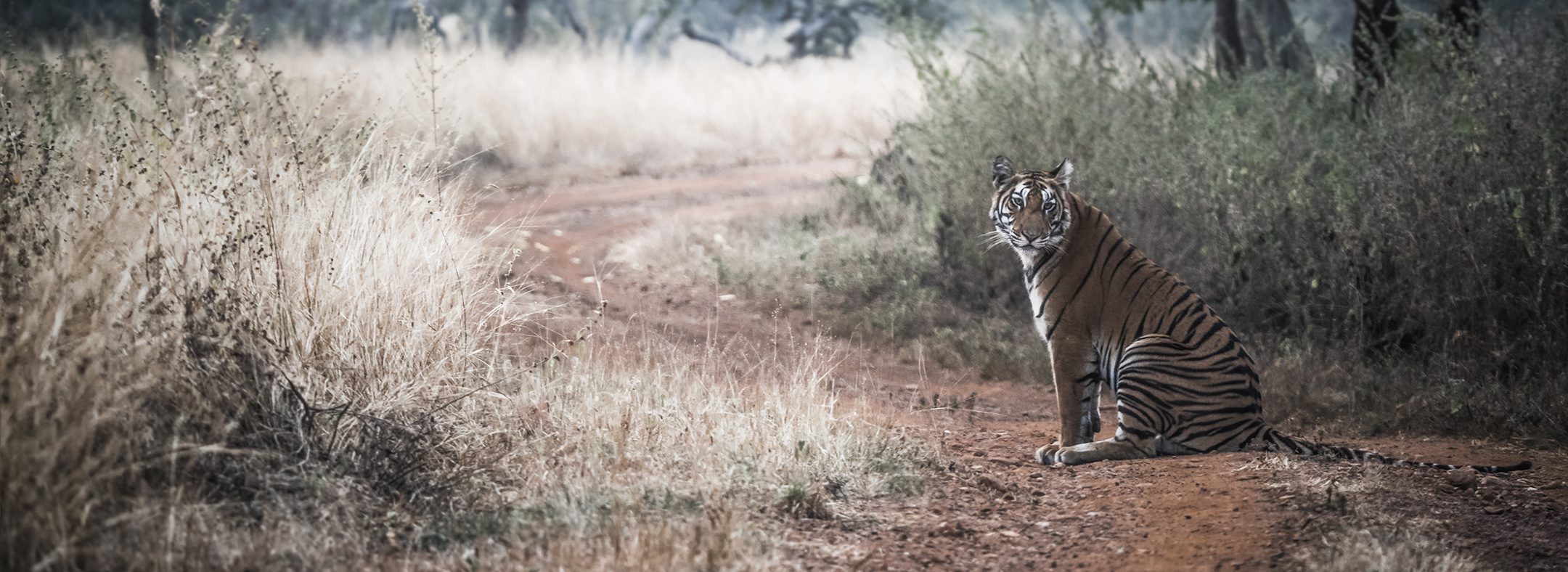
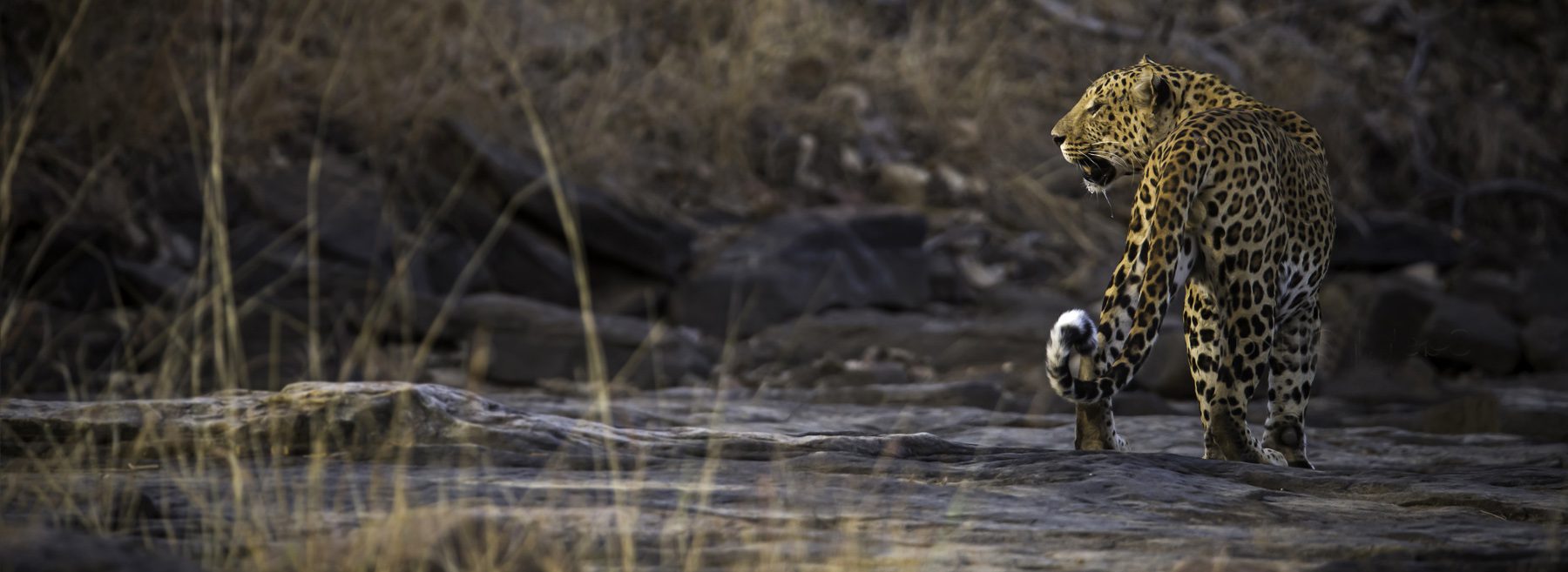
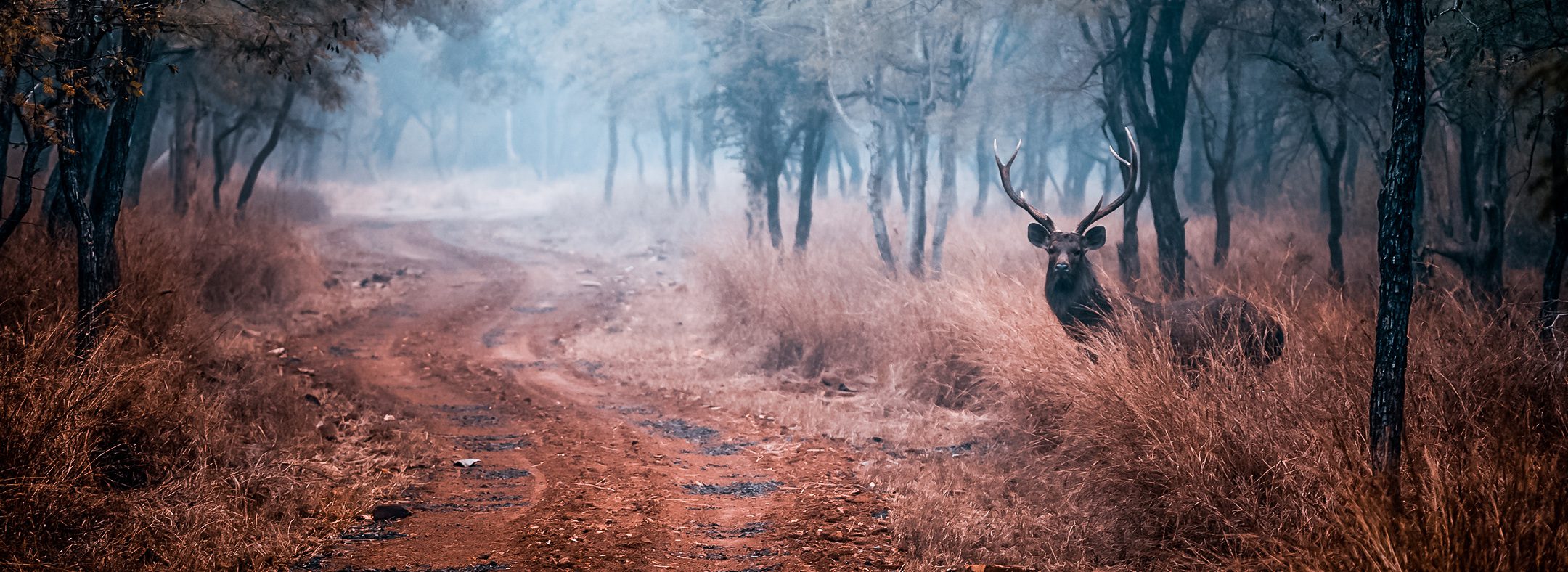
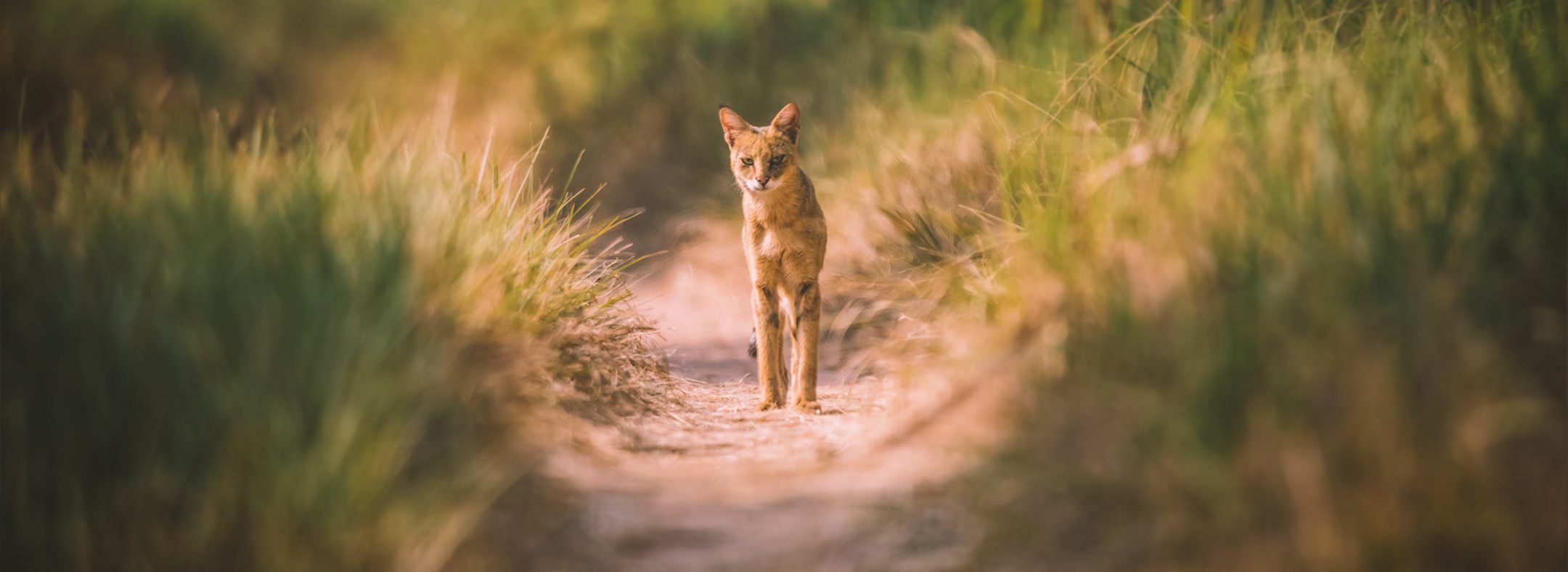
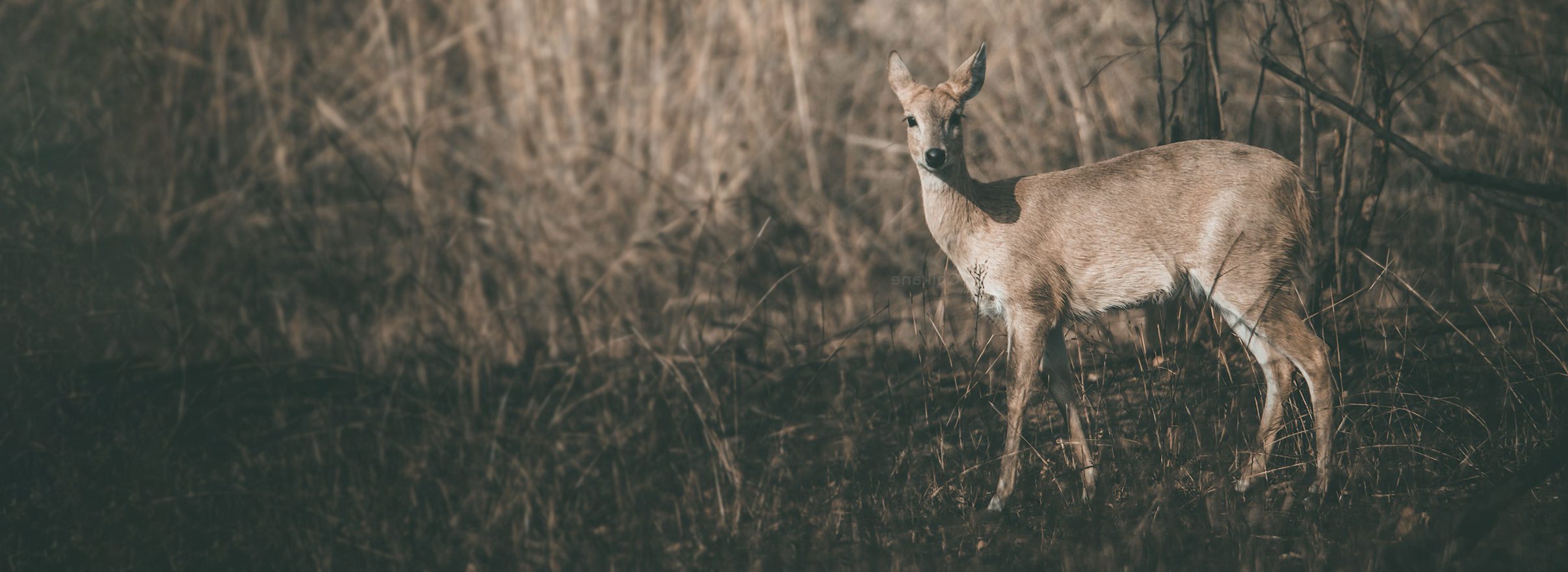
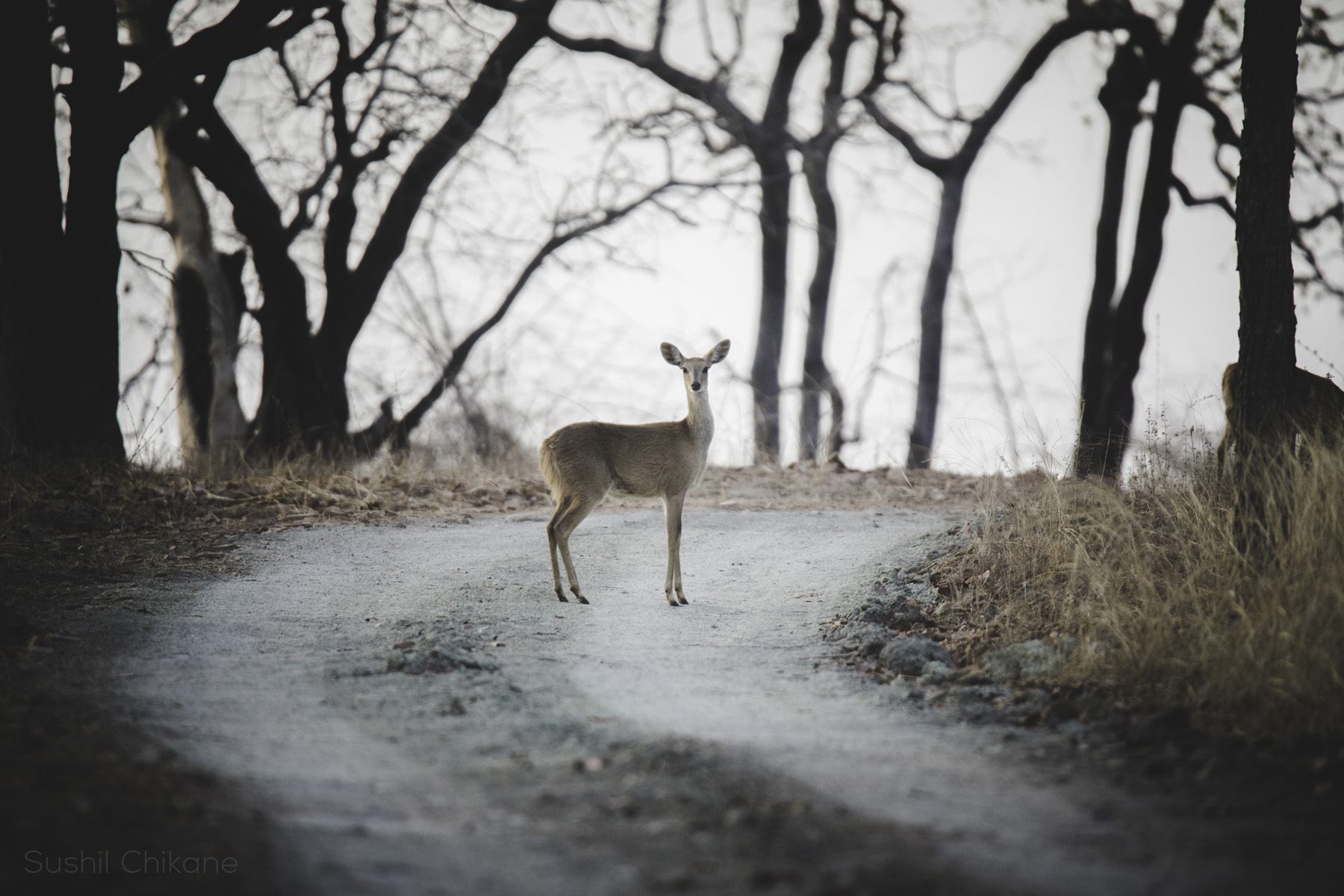
Panna National Park is a national park located in Panna and Chhatarpur districts of Madhya Pradesh, India. It has an area of 542.67 km2. It was declared in 1994 as the twenty second Tiger reserve of India and the fifth in Madhya Pradesh. Panna was given the Award of Excellence in 2007 as the best maintained national park of India by the Ministry of Tourism of India. It is notable that by 2009, the entire tiger population had been eliminated by poaching with the collusion of forest department officials. The Ministry of Environment and Forests (MoEF) approved a proposal to translocate two tigers and two tigresses to the reserve. One female each from Bandhavgarh National Park (coded T1) and Kanha National Park (T2) were translocated to Panna Tiger Reserve. A tiger male, coded T3, was brought from Pench Tiger Reserve but strayed out of the park shortly thereafter, in November 2009. The tiger started walking towards its home in Pench National Park, indicating homing instinct. It moved steadily through human dominated landscape without causing any conflict. Forest department staff tracked it continuously for over a month and finally brought it back to the Panna Tiger Reserve. It then settled well, established territory and started mating. The tigress, T1, translocated from Bandhavgarh National Park, gave birth to four cubs in April 2010 of which 2 survive till date. The second tigress, T2, translocated from Kanha National Park gave birth to four cubs several months later and all four survive till date. A third tigress, coded T4, an orphaned cub was reintroduced to Panna in March 2011. She learnt hunting skills with the help of the male and mated with him. She was found dead on 19 September 2014 of an infection caused by its radio collar. Her sister T5 was released in Panna in November 2011. Thus four tigers and around 10 cubs of up to 2 years are settled in Panna Tiger Reserve at present and their progress is being regularly monitored by the Forest Department.
Type of Forest: Deciduous (Sal); Dry Deciduous (Saja, Tendu, Tinsa, etc.), Bamboo and Meadows.
Weather: Temperatures in winter range from 10 degree celsius during the Day and can Drop to -10C late at Night and early mornings. Temperature in summer range between 20-48 degree celsius.
Accessibility by Train: Satna
Accessibility by Air: Khajuraho/ Jabalpur/ Prayagraj
Day 1: 19/11/20:
Satna/Khajuraho/Jabalpur/Prayagraj-Panna
Arrival at Satna/Khajuraho/Jabalpur/Prayagraj. You would straight away proceed to Panna by AC car (2 HRS).
On arrival at Panna, check in into the resort. Lunch.
Set out for an afternoon safari in private gypsy- explore the park.
Interaction with naturalist on a post trail session about Panna. Dinner and overnight stay.
Day 2: 20/11/20:
Panna
With an early wake up call, get set for the safari experience. Have a great morning drive.
On your return to campsite have breakfast, relax, refresh.
Lunch.
Post Lunch proceed for another Safari, and return to the campsite just after sunset. Dinner and overnight at stay.
Day 3: 21/11/20:
Panna
With an early wake up call, get set for the safari experience. Have a great morning drive.
On your return to campsite have breakfast, relax, refresh.
Lunch.
Post Lunch proceed for another Safari, and return to the campsite just after sunset. Dinner and overnight at stay.
Day 4: 22/11/20:
Panna-Satna/Khajuraho/Jabalpur/Prayagraj
With an early wake up call, get set for the safari experience. Have a great morning drive.
On your return to campsite have breakfast, relax, refresh.
Lunch.
Get ready with your bags packed and post lunch depart for Satna/Khajuraho/Jabalpur/Prayagraj.
